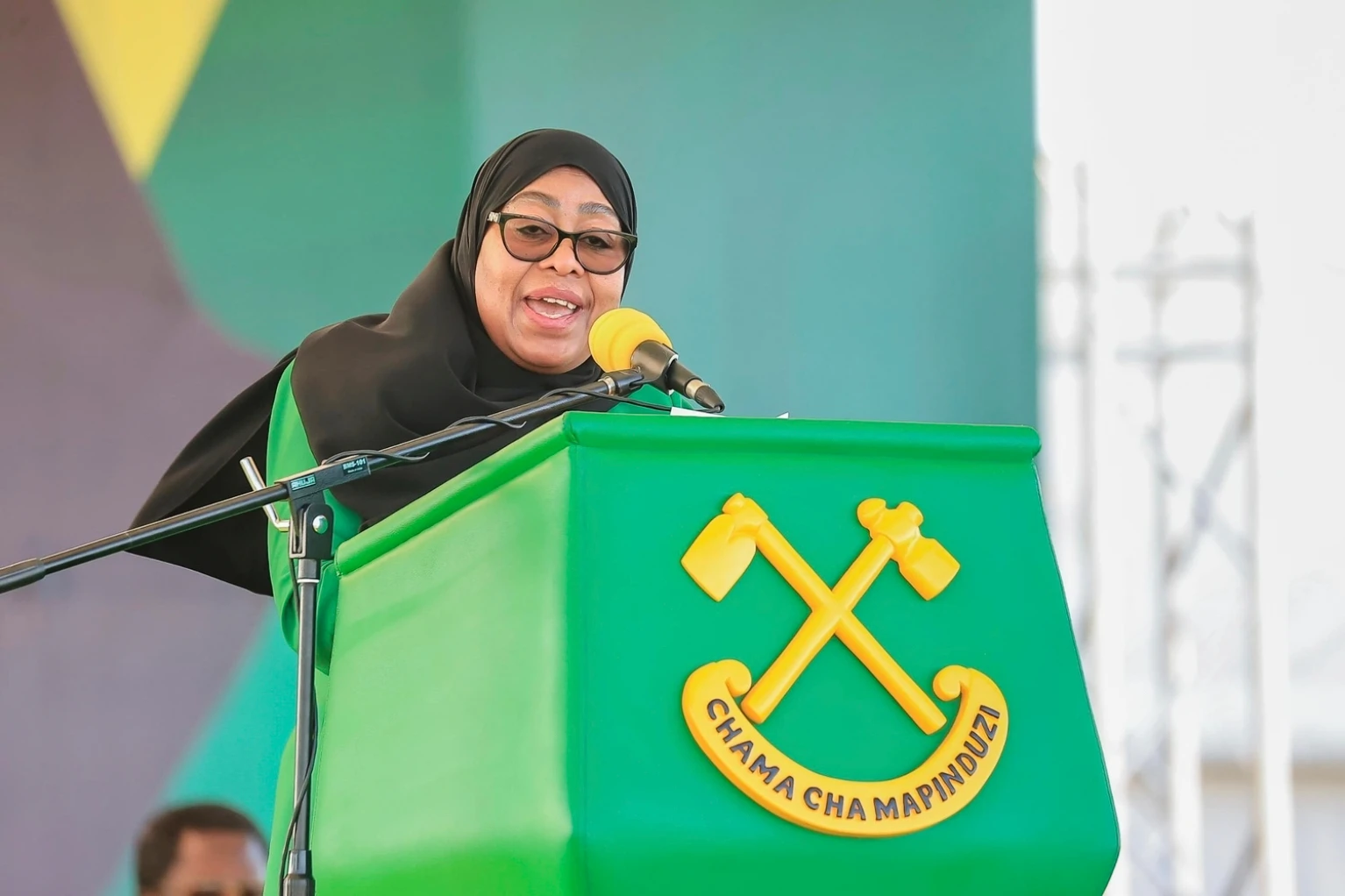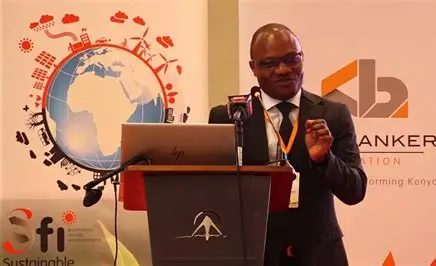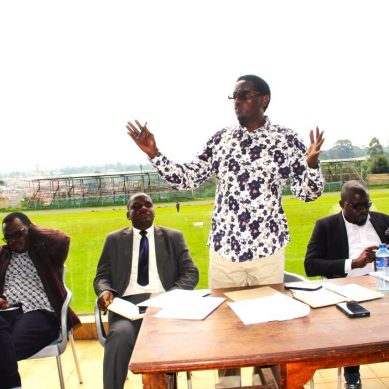
The issues of violence in general and state inspired violence in particular in Uganda has received a lot of attention, particularly in relation to elections (e.g. Karyogonya, 2019).
The Conversation of April 10 2022 put it plainly that the Ugandan state outsources the use of violence to stay in power. Meanwhile the regime in power inspired by the political resource of violence, has converted violence into a political tool to subvert its victims – the people of Uganda to its dictates of conquest, control and domination.
When President Tibuhaburwa Museveni offered himself for presidential election in 1996, some writers such as Christopher Blattman (2009) thought that Uganda was leaving war, conflict and violence behind to embrace voting as the means to usher in change in leadership and steady the country on the road to meaning ful and effective political participation of all Ugandans. Little did they know that if Ugandans were enjoying political participation under the National Resistance Movement/Army No-Party political dispensations, 1996 marked the beginning of the use of violence as a political weapon to deny a large section of citizens their right to choose their leaders without coercion.
It also marked the beginning of violence-related violation of human rights in Uganda (e.g. Civil Rights Defenders, 2017). Many people have lost their lives, become maimed or incarcerated for long periods of time because they do not, or did not support President Tibuhaburwa Museveni and his National Resistance Movement/candidates in elections.
Although Goodfellow (2014) thought it was semi-authoritarianism in Uganda and Movement political governance, on growing school of thought believes Uganda’s is now a full-blown, dictatorship subserved by authoritarianism and violence. The same school of thought is convinced the Movement can not survive for even a single day without violence being at the centre of politico-military governance in Uganda.
Concurrently, as Goodfellow (2014) observes, the Movement (political and military) uses manouvres and laws to ensure that power perpetually remains in its hands.
The International Crisis Group (ICG) announced in 2017 that it believes Uganda is sliding into sociopolitical crisis. It submits that growing discontent threatens the dysfunctional and corrupt political system built by President Museveni who is now manoeuvring to extend his almost four decades in power….
As security, governance and economic performance deteriorate Uganda needs urgent reforms to prevent greater instability.
Khisa and Rwangabo (2022) examined violence in the Rwenzori region and thought that fragmentation (or bantustanisation) had a lot to do with violence in the area. Bantustanisation means breaking a country into numerous small, potentially conflicting units over boundary resources. Besides, Uganda has been described as International Bantustan (Doombes, 1996; Love, 1996). The former traditional 15 nations of precolonial Uganda have been reduced to powerless Bantustans, more or less like the apartheid Bantustans of defunct racist South Africa.
Kirwin and Wonbin Cho (2009) were convinced that political violence in sub-Saharan Africa was a property of weak states. A weak state, sometimes referred to as a fragile state, is a country characterized by weak state capacity or weak state legitimacy leaving citizens vulnerable to a range of shocks. It is also characterised by weak, diffuse governance, limited administrative capacity, chronic humanitarian crises, persistent sociopolitical tensions and, often, violence on the people, or the legacy of armed conflict and civil war. Uganda seems to fit this description although its leaders project it as a powerful state, with a strong leader and a strong army. There is a school of thought that Uganda is in fact a failed state (Rotberg, 2025).
In East Africa, weak states indeed tend to preoccupy themselves with militarism, overspending on militarisation and exporting violence to neighbouring countries. Apparently, Uganda and Rwanda are the most often cited violent states in the Great Lakes Region. The rulers of the two countries waged a five-year rebellion in the Luwero Triangle in Buganda, where they perfected violence as a political tool for capturing power in Uganda and Rwanda.
Oweyegha-Afunaduula (2023) discussed the root causes of violence in Uganda and the Great Lakes Region. Oweyegha-Afunaduula (2023) also discussed the role of African rulers in institutionalised violence in Africa.
In his article ‘Bigmanity, the Sterile Culture of Money in Africa: The Case of Uganda’, Oweyegha-Afunaduula (2023) links the big man syndrome, the sterile culture of money and violence in one spectrum to explain the ever-present sea of insecurity despite claims that big, well-equipped armies will ensure peace and security in Africa in general and Uganda in particular.
Research reveals that the often-cited rulers in the Great Lakes Region and Africa in connection with violence are President Paul Kagame of Rwanda and President Tibuhaburwa Museveni of Uganda. These two rulers have spent excessively more on their militaries than on health and education in pursuit of military superiority and domination on the majority ethnicities within their borders as well as keeping, especially the Democratic Republic of Congo under constant unpeace and clandestine exploitation of its resources.
There is evidence that some of the money they requisition from their Parliaments is used to fan war in the DRC (e.g. Plett Usher, 2025; Fleming and Bigirimana, 2024 and Maddocks, 2025).
Uganda is paying millions of dollars to the Democratic Republic of Congo (DRC) because its soldiers stole the resources of that country and committed gross human rights violations in the country, including genocide.
Therefore, the conversion of violence into a political tool and weapon of war is ruining not only peace and security but also undermining the hope of East African Community’s cooperation, development, transformation and progress as well as trust in the region. Besides, in Uganda the use of violence as a political weapon in every election is grossly reducing the legitimacy of the NRM regime let alone the value of elections in producing leaders.
One cannot claim having won the elections if one used violence to mediate between the voters and the ballot boxes. The government formed thereof manifests as an imposed government the the regime as an occupation regime, unfortunately.
For God and my country.
Further reading
Barbara Plett Usher (2025). Ho is pulling the Strings in the DR Congo Crisis? BBC News, 8 February 2025, https://www.bbc.com/news/articles/cp8qp6p39e9o Visited on 27 February 2025 at 12:17 pm EAT.
Blattman, Christopher (2009). From Violence to Voting: War and Political Participation in Uganda. Yale University, March 2020. https://poverty-action.org/sites/default/files/publications/Blattman.FromViolenceToVoting.APSR_.pdf Visited on 27 February 2025 at 10:01 am EAT
Civil Rights Defenders (2017). Human Rights in Uganda. Stockholm October 2017.
CRISIS GROUP (2017). Uganda’s Slow Slide into Crisis. CG, 21 November, 2017. https://www.crisisgroup.org/africa/horn-africa/uganda/256-ugandas-slow-slide-crisis Visited on 27 February 2025 at 10:32 am EAT.
Doombes, Martin (1996). Uganda: A Bantustan? Review of African Economy, 69: 425-427.
Fleming, Lucy and Didier Bigirimana (2024). Two Armies Accused of Backing DR Congo’s feared Rebels. BBC News, 9 July 2024. https://www.bbc.com/news/articles/c134kgdpd6do Visited on 27 February 2025 at 12:10 pm EAT.
Garbe, L. (2024). Pulling through elections by pulling the plug: Internet disruptions and electoral violence in Uganda. Journal of Peace Research, 61(5), 842-857. https://doi.org/10.1177/00223433231168190 https://journals.sagepub.com/doi/full/10.1177/00223433231168190 Visited on 27 February 2025 at 10:44 am EAT.
Goodfellow, T. (2014) Legal manoeuvres and violence: Law making, protest and semi-authoritarianism in Uganda. Development and Change. Wiley Online Library, 45 (4). 753 – 776. ISSN 0012-155X https://onlinelibrary.wiley.com/doi/10.1111/dech.12097 Visited on 207 February 2025 at 10:18 am EAT.
Human Rights Watch (1999). Hostile to Democracy the Movement System and Political Repression in Uganda. Human Rights Watch, October 1 1999. https://www.refworld.org/reference/countryrep/hrw/1999/en/40531 Visited on 27 February 2025 at 10:52 am EAT
Jennifer Maddocks (2025). The Conflict in Eastern DRC and the State Responsibility of Uganda and Rwanda. Lieber Institute, February 6 2025. https://lieber.westpoint.edu/conflict-eastern-drc-state-responsibility-rwanda-uganda/ Visited on 27 February 2025 at 12:02 EAT.
Kanyogonya, Elizabeth (Editor) (2019). Election Related Conflict and Violence in Uganda. Research Report. Women International Peace Centre -The Peace Centre (2019). https://wipc.org/wp-content/uploads/2021/07/Election-Related-Conflict-and-Violence-in-Uganda.pdf Visited on 27 February 2025 at 9:35 am EAT.
Khisa Moses and Sabastian Rwengabo (2022). The Deepening politics of Fragmentation in Uganda: Understanding Violence in the Rwenzori region. African Studies Review, Volume 65, Number 4 (December 2022), pp. 939–964.
Love, Roy (1997). On the Idea of an International Bantustan. Review of African Political Economy Vol. 24, No. 71, NGOs and the Development Industry (Mar., 1997), pp. 129-131 (3 pages) Published By: Taylor & Francis, Ltd.
Matthew F. Kirwin and Wonbin Cho (2009). Weak States and Political Violence in Sub-Saharan Africa. Afro 10 Barometer, Working Paper No 111. August 2009, https://www.afrobarometer.org/wp-content/uploads/2022/02/AfropaperNo111.pdf Visited on 27 February 2025 at 11:00 am EAT.
Oweyegha-Afunaduula (2023). The Root Causes of Violence in Uganda and the Great Lakes region. Ultimate News, March 28 2023. https://ultimatenews.co.ug/2023/03/oweyegha-afunaduula-root-causes-of-violence-in-uganda-and-the-great-lakes-region/ Visited on 27 February 2025 at 11:34 am EAT.
Oweyegha-Afunaduula (2023). The Role of African Rulers in institutionalised violence in Africa. The Kampala Post, May 4 2023. https://www.thekampalareport.com/talk-back/2023050426367/oweyegha-afunaduula-the-role-of-african-rulers-in-institutionalized-violence-in-africa.html Visited on 27 February 2025 at 11:43 am EAT.
Rotberg, Robert I. (Editor)(2025). When States Fail: Causes and Consequences. Princeton University Press. https://press.princeton.edu/books/paperback/9780691116723/when-states-fail?srsltid=AfmBOop9GjMxPWF3aXjL1pxm8sWgMbHf15NehSdNMovEf3kESEf6nKAJ Visited on 27 February 2025 at 13:11 pm EAT
THE CONVERSATION (2022). How the Ugandan State outsources the use of violence to stay in power. The CONVRSATION, April 10 2022. https://theconversation.com/how-the-ugandan-state-outsources-the-use-of-violence-to-stay-in-power-180447 Visited on 27 February 2025 at 9:42 am EAT.








